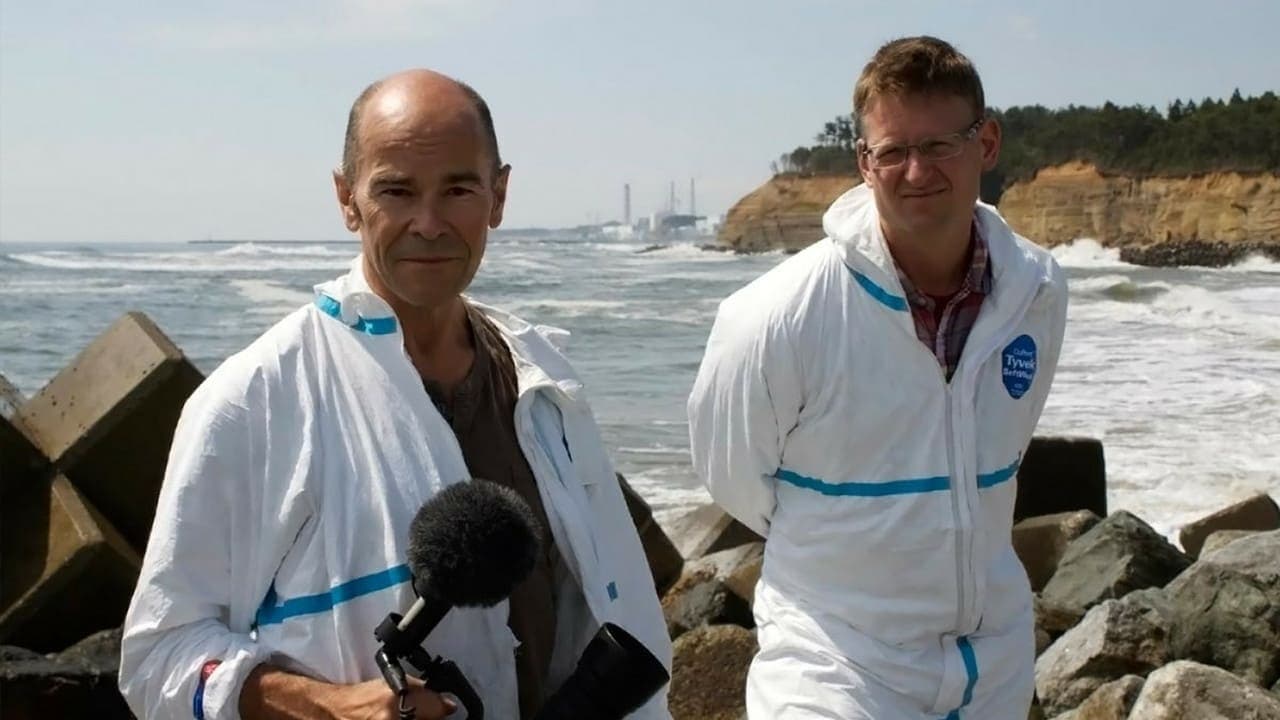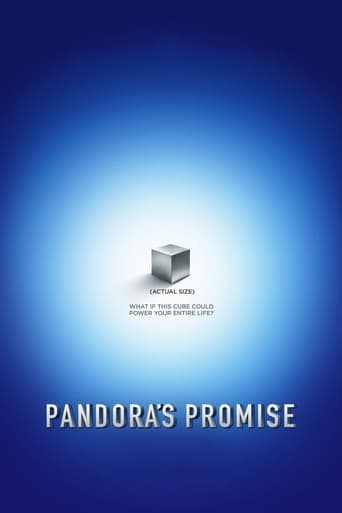

Watching this made me laugh many times at how uninformed and juvenile these environmentalists are. They simply railed against nuclear energy without knowing any of the science. The most striking insight was when it came to global warming. They dismiss those who don't believe in anthropogenic global warming EXACTLY in the same way they now dismiss the anti nuclear energy crowd. They are as poorly informed and educated about global warming as were about nuclear energy.Having said all this the documentary gives you insight into how the environmentalists gin up faux angst and anger based upon emotion and fraud rather than science.
... View MoreThis film is much better than what people rank it. Not a surprise, as these reviewers are by far liberals who could not accept the message. I watched it on CNN. It was a very interesting film in many ways. I found most interesting the education of two of the old leading environmentalists. Who blatantly admit they were closed minded in their view of how energy production could be made feasibly. They slowly educated themselves to understand that wind and solar were not realistic options for producing the massive amount of energy that is needed globally and that it would be impossible for the globe to solve it's energy needs with just them. They admit feeling lied to and stupid for believing that wind and solar were going to solve the worlds problems. As someone who didn't need a video to state the obvious, I am left wondering how people can really believe those blatant lies. With out spoiling the doc and getting into specifics. This guy does a good job at taking a hard look at things. He does not say we should never use solar or wind. Simply it will never be enough and they use a natural gas when to keep the plants running when their is no wind or it's cloudy. And he's right. Nuclear is his better than the rest of the other options solution. As someone who personally thinks clean coal is a better option, I will say he makes a strong argument. My only, concern with his theory, is that he never talks about what to do with the spent fuel. These critics of the film are hell bent on 2 arguments. Conservation and solar. Conservation isn't put much into the video, but he clearly states in interviews that we will never conserve enough and we will always use more. Which studies and both common sense prove to be true. But he never address that fissile fuels can be made to burn cleaner. 1 thing he definitely got right. It's not just the US. The emerging world that is starting to use more and more energy is going to massively increase pollution. Which there is no fix. I am waiting for the day we start having the Chinese global debate for 1 child.
... View MoreI am no nuclear expert, but I've had plenty of debates about nuclear power based on what I could glean from websites, typical news coverage, and the few documentaries I've watched. I've heard opposing laymen make rather poor and often hyperbolic arguments for nuclear power with little effect; largely from the lack of hard information. These arguments never struck me as more than regurgitations of industry talking points.Something about this documentary coming from the perspective of people who are environmentalists softens the message. There's no excoriating attack on those who would dare oppose the "obvious logic" of nuclear power. There's no absence of raw data. There's no ideological slant or demagoguing of the environmental movement. It's simply a documentary presented in the perspective of people who changed their minds.One of the most powerful images in this documentary is the repeated use of the Geiger counter (or whatever measures milliSieverts) at different locations on Earth, including sights of recent disasters. We see that the hype over nuclear disasters is exactly that. A beach in South America has a natural radiation level far higher than that in Chernobyl as well as that in Fukushima.I gave this documentary a 10 because it completely flipped my opinion on nuclear power. I just watched this and I am in a state of shock from what I saw. How our international culture reached the point that nuclear power has had such an undeserved bad rap is beyond me. If public opinion changes, we're talking about doing away with fracking, expensive solar panels and fields of wind turbines.I do reserve my final judgment somewhat until I've heard other contrarians make academic counterarguments to this documentary, but the snippets I've heard don't sound like they'll change my mind. If you're of the same opinion as I had, please watch this and let me know if the arguments made are flawed and present them here. As it stands, I'm convinced.
... View MoreThis film is unfortunately very poorly edited and organized. I was really open to the basic idea this film wanted to convey but have come away not anymore convinced to be for or against nuclear power. That is because this is just not a very good film. The experts were not very compelling. They are smart, articulate, and probably nice. But, the story of their journey from being against to being for nuclear power really was fell flat. Perhaps that is the fault of the editing or perhaps they are not very compelling people. On the plus side the production values are very good. It is a pretty film to look at. I didn't like the overly dramatic shots of the experts (not speaking) looking into the camera or staring off into the distant future (or something like that). I never felt very connected to the experts as people. The music was very ominous in tone. The overall production made me feel that something very bad is waiting for us in the future. If the filmmakers want to motivate people to action in support of nuclear power - an ominous tone is probably not the best strategy.
... View More